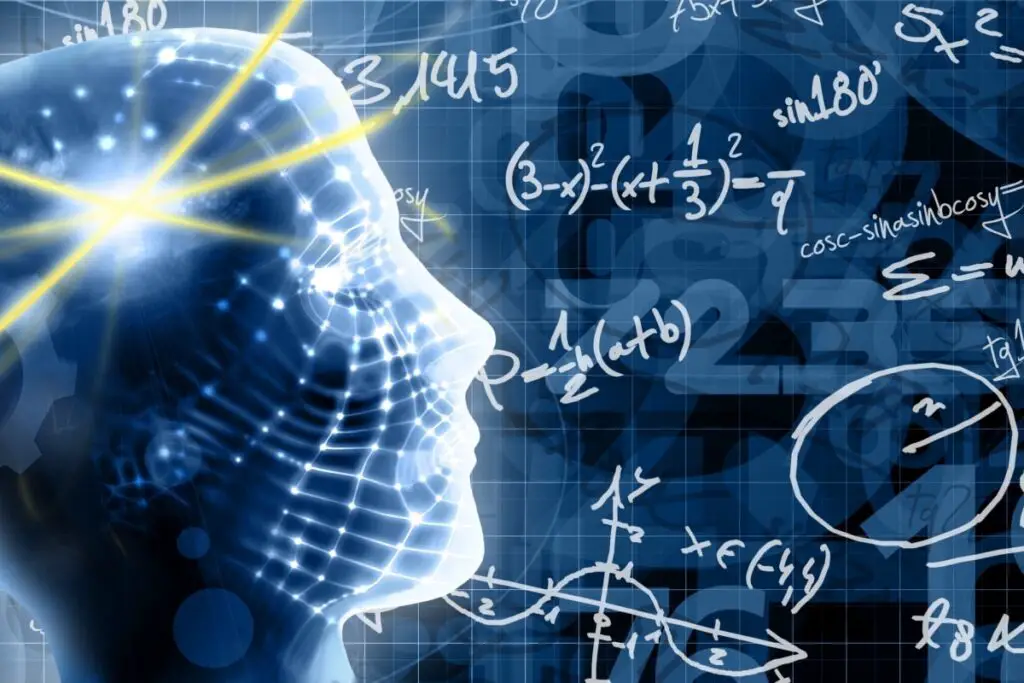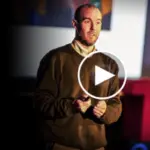An interesting recent Templeton Foundation commentary, “Is There a God-Shaped Hole at the Center of Mathematics”, observes that since the inception of western philosophy in Plato’s thought several millennia ago, mathematics, with its promise of absolute, precise, and indisputable knowledge of reality, has increasingly assumed the status of foundational ‘Truth’ in the western intellectual tradition. Being predicated upon mathematics and mathematically-based modes of verification, modern science and its worldview have therefore acquired the status of “objective fact”: an absolutely, universally true account of reality-–a mirror of nature, as Richard Rorty puts it. Science since the advent of modernity has seemingly provided the kind of objective certainty (or at least the means for someday attaining it) sought by western civilization since Plato’s time. As 19th century physicist and President of The Royal Society, Lord Kelvin, wrote: “When you can measure what you are speaking about, and express it in numbers, you know something about it, when you cannot express it in numbers, your knowledge is of a meager and unsatisfactory kind; it may be the beginning of knowledge, but you have scarcely, in your thoughts advanced to the stage of science.”
However, more recently–and along with developments like paraconsistent logic and dialetheism— logician Kurt Gödel’s landmark Incompleteness Theorem demonstrated, in an important sense, the fundamental contingency and subjectivity of mathematical knowledge: that no formal mathematical system can be both internally non-contradictory, and self-referentially validating (or in short, ‘objectively’, mathematically, and measurably, true). Since mathematics has, from Plato’s philosophy to contemporary physics, been considered foundational to both reality and our knowledge of it, Gödel’s insight was as revolutionary in many ways as were Einstein’s (who was one of the reclusive Gödel’s few friends). His insight undermined the apparent logical certainty and rational objectivity of mathematics and science.
In his History of Western Philosophy Bertrand Russell noted how, because of the mathematical influence on Plato’s metaphysics (largely via the religious and quasi-mystical mathematical philosophy of Pythagorus— of Pythagorean theorem fame— who influenced Plato’s thought), his philosophy tended to conflate mathematics and religious mysticism. Thus the entire western intellectual legacy shaped by Platonism from neo-Platonic philosophy through Enlightenment and current science (from Kepler , Newton, and Descartes, through contemporary physics) has continued this Platonic tradition in many respects: Newton considered the physical world to be the corporeal extension of God’s mind, Einstein often expressed his scientific aspirations in theistic terms, and (elaborating on the logical and mathematical theology of the philosopher Leibniz) Gödel devised a logical proof for the existence of God that has been replicated and ‘confirmed’ via artificial intelligence. Nonetheless, if we keep in mind the very subjective contingency of mathematics as demonstrated by Gödel himself, then mathematical- logical proofs for God tend to lose their once authoritative status. As the Templeton essay notes:
“Yet, the results of such AI calculations about metaphysics still rely on fundamental assumptions regarding the mathematical axioms that one assumes in the first place. Thus, the only weak point in Gödel’s ontological proof for the existence of God would appear to be Gödel’s own incompleteness theorems proving the limited and unprovable nature of all mathematical endeavors”
Whether this is evidence that God (at least the anthropomorphic type of God found in the Judeo-Christian-Islamic traditions) doesn’t exist, OR just evidence that the limited nature of scientific and mathematical logic isn’t adequate to describe (let alone prove the existence of) such a God, remains a mystery…..But the important assumption shared by all these thinkers (including Godel) that Godel’s Theorem paradoxically undermines nonetheless, is that absolute, objective knowledge predicated on quantification is even possible.
Yet Another article in “Noema” explores a related aspect of Gödel’s incompleteness theorems and their implications: namely the paradox of self-reference and its relation to the ever-mysterious origins and nature of consciousness. Renowned physicist Roger Penrose contends that the incompleteness theorem’s insight about any formal logic system being both internally contradictory and self-referentially unsupported, means that the mind that recognizes this contradiction must be capable of viewing logical systems from a vantage-point outside of those systems themselves. Gödel’s incompleteness theorems imply that consciousness can’t, ultimately, simply be part of the brains mental algorithms, or else it could not recognize Gödel’s incompleteness theorems…. this means that human thought and consciousness can’t be just an algorithm restricted to the mechanistic operations of the brain.
From this insight, thinkers like Douglas Hofstader (in his original, brilliant and famous work Godel,Escher, and Bach) derived the idea that human consciousness (or at least self-consciousness via self-awareness) emerges from the kind of self-referential paradox that Godel pointed out: we become self-conscious by mentally standing apart from our own consciousness and becoming aware of it. We bring reflective consciousness into being by reflecting on it. Self awareness arises when we become self-aware of it. It emerges in an “ouroborus loop” of paradoxical self-creation. This idea has a venerable history in world philosophy, psychology and spirituality: Buddhism talks about self-identity arising from “dependent co-origination” whereby self and not-self come about via mutual dependence. Like the surface of a mirror that can only be seen when it reveals everything it is not, the emergence of self-identity is contingent on its constant reflection on all that is not itself. Sartre’s existentialism also describes self-identity (being-for-itself) as the paradoxical identification with all that it isn’t (being-in- itself)–the process of conscious awareness becoming lost in its own objects of attention. For Hofstader it involves brain processes monitoring other brain processes—resulting in the emergence of consciousness via self-awareness in what he famously refers to as a “strange loop”.
The article goes on to describe a number of theories from contemporary neuropsychology that draw upon Godel-inspired concepts of consciousness similar to that of Hofstader. ‘Tonini’s “integrated information theory’ and Baar’s “global workspace theory”, for instance, are currently popular models that involve complex ‘feedback loops’ of quantum information and disparate regions of the brain that generate self-awareness and, through this, consciousness. Even physicist Carlo Rovelli’s “relational theory” of quantum mechanics draws a similar picture of reality in its entirety –suggesting that any physically existing subatomic system comes into existence only through comparison or interpretation with another such system.
However, where this article, all these physicalist theories: Hofstader’s “strange loop” of self-awareness, and even perhaps Penrose’ concept of mind —which still looks for its origins in quantum processes within the brain— miss the point, is in their failure to understand how Gödel’s theorems highlight the explanatory inadequacy of physical, quantitative, scientific explanations for consciousness. Gödel’s incompleteness theorems, as Penrose himself noted, imply that consciousness must be something that transcends the algorithmic mechanisms of the brain. This suggests further that whatever it is, the mind certainly can’t be explained simply via the physical brain, or via science and mathematics, no matter what complex or fanciful patterns we may discern in its operations.
No matter how many numbers we add up, they’ll never amount to Infinity. No matter how much clock-time we mark, we’ll never experience eternity. No matter how closely we look for it, we’ll never see vision itself. And no matter how quantitatively complex chemical processes and neural algorithms in the brain may be—strange loops and all—they’ll never explain consciousness or mind. THIS, rather than Hofstader’s and related theories, seems to be Gödel’s cautionary lesson for science, philosophy of mind and, perhaps, the prospects for any certain knowledge at all.
We hope you enjoy our articles. Please note, we may collect a share of sales or other compensation from the links on this page. Thank you if you use our links, we really appreciate it!



